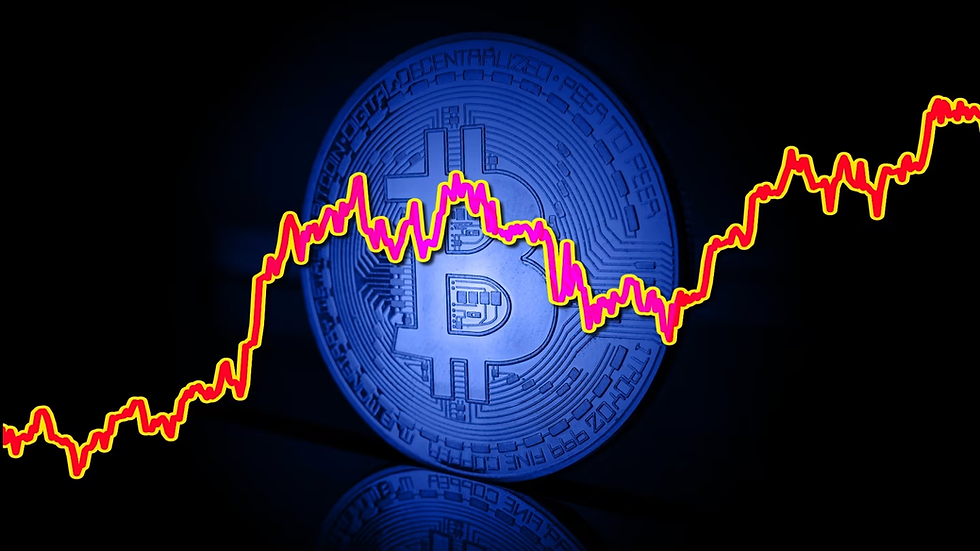Property… but not as we know it: liquid property and the new asset-based economy
- Investor Relations Team

- Dec 12, 2022
- 4 min read

Property, or real estate, is a fixed asset that is common to all of us. We all live and work in ‘properties’ and many of us have worked hard over many years to own them. We may move in and out of them but properties themselves do not physically move. Almost without exception they are also permanently ‘fixed’ by bricks, steel, and mortar to wherever they were originally built.
What if all properties however could be made economically and financially ‘liquid’ and instantly convertible into real world fiat cash on your mobile phone?
Creating ‘liquid property’ would effectively make what most of us consider an ‘illiquid’ asset into a fully ‘liquid’ and instantly transferrable one. What if the value of properties and their title certificates could be easily and safely stored on mobile phones, on a payment card, and moved across the world at the speed of light? What if we then discovered that we were able to use liquid property for storing our wealth in the form of inflation resistant ‘slices’ of legal titles of properties… while it also remained instantly available to all of us as fiat money to buy goods and services that we wanted anywhere in the world?
Inflation… but not as we have known it
A classic definition used by economists for the cause of inflation is ‘too much money chasing too few goods’. By any such definition our governments (both pre and post covid stimulus payments), banks and trading systems have now created too much money and too much debt and therefore by equal measure have now created too much inflation. Too much inflation also reduces broad confidence in the ability of our fiat currencies to hold value or retain their purchasing power. For these reasons, and some others related to the COVID-19 pandemic, Ukraine and disrupted supply chains, this has resulted in the inflation of the price of goods, energy and services reaching levels never seen before. The CPI (Consumer Price Index) annual inflation rates to October 2022 of have hit 7.75% in the USA, 11% in the UK and a whopping 10million % in Venezuela. The CPI inflation rates in all countries are expected to sharply increase over the next 2-15 years and to increasingly match the much higher monetary inflation rates (increase in money supply) within each economy. Although not a part of the formula used for calculating CPI, property has also continued to increase at rates equal to or greater than inflation with sporadic adjustments. The advent of new financial technologies, systems and thinking currently taking place within the property and financial industries is forcing a change in how property is used within these industries and it is creating changes to both the access to the asset class and its affordability. The threshold for owning of property, who then owns it, how it is used, and most importantly who benefits from it, is now being globally disrupted. This is the genesis of ‘liquid property’.
Inflation-resistant money, going mortgage free and half price homes
As many have noted properties and homes that used to be commonly accessible and affordable are no longer so. Many families have to wait until their thirties to even hope to be able to buy a home and delay having families until they believe that they can afford one. Traditionally we would typically raise a deposit, agree a mortgage or debt for the property, purchase it and then have the use of it while paying down the debt over time. What most did not know is that the asset-backed financial instruments that were created in this process would then be used by our banks and financial systems to create further digital money (using the fractional reserve lending systems) for their own benefit which would then be lent to others to then also buy their own properties. This would be done again and again as our financial systems and banks found that they could create such digital money seemingly from nothing, and lend it, while charging the recipient of the loans for the privilege. For fifty years this process has by and large worked reasonably well in its net effect as it created the excess capital needed to grow new businesses and technologies and growth, even while it decreased the purchasing value of fiat money we earned in the process. That is until now.
As a result of the money printing and expansion of the money supply over the last 52 years, coupled with the accelerated effect of monetary stimulus used in the pandemic, our banking systems have arguably now created too much global debt and too much digital money. This has resulted in levels of monetary and consumer inflation that have never been seen in living memory. It has also directly impacted and eroded the trust and value previously held in our fiat money or national currencies. This is not new. Copper as was previously used to debase gold. It has happened many times before over the millennia and it will happen again. In 1965 an average home in the UK cost £3,542. In 2021, and it then cost £274,000. Inflation over this period was, according the Bank of England, average 4.8% p.a.
SOURCE: Written by Antony Abell, CEO & Co-Founder of the TPX™ Property Exchanges, London.




Comments